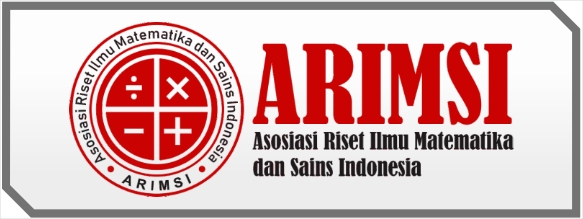Tinjauan Psikologis terhadap Motif Pelaku Kekerasan Seksual
DOI:
https://doi.org/10.59581/jmk-widyakarya.v2i6.4276Keywords:
sexual violence, perpetrator motives, psychological reviewAbstract
Currently, cases of sexual violence in Indonesia are increasing. This raises questions as to why this is happening. The complex phenomenon of sexual violence is caused by various psychological, social, and cultural factors.This research discusses the motives of perpetrators of sexual violence such as self-control, acts of aggression, and unstable mental conditions. This research uses a qualitative research method with a literature study approach. Through review of the literature, this research will explore the sexual experiences of the and the role of the social environment in shaping his sexual behavior in the present. in the present. The results of this research are expected to provide a deeper understanding of the triggering factors of sexual violence as well as a basis for the development of the basis for the development of more effective sexual violence prevention efforts effective sexual violence prevention efforts.
References
Ain, N., dkk. (2022). Analisis diagnostik fenomena kekerasan seksual di sekolah. Jurnal Pendidikan Dasar dan Keguruan, 7(2).
Arif, I. S. (2006). Dinamika kepribadian, gangguan, dan terapinya (Understanding the Unconscious). Refika Aditama.
Arini, D. P. (2021). Dinamika psikologis pelaku pedofilia berdasarkan perspektif psikologi perkembangan. Jurnal Psikologi Forensik Indonesia, 1(1).
Freud, S. (2006). Pengantar umum psikoanalisis. Pustaka Pelajar.
Gay, P. (2002). Sigmund Freud: Riwayat singkat. Dalam S. Freud, Peradaban dan kekecewaannya (Jendela).
Hanum, F., & Saragih, M. (2022). Theory of cognitive development by Jean Piaget. Journal of Applied Linguistics, 2(2).
Hertanto, M. A. (2024). Mengungkap motif psikososial pelaku kekerasan seksual inses di lapas kelas I Makassar. Retrieved from http://repository.unhas.ac.id/id/eprint/36754/2/C021171514_skripsi_28-08-2024%20bab%201-2.pdf
Izzatusholekha. (2022). Permendikbud No. 30 Tahun 2021 tentang kekerasan seksual di lingkungan perguruan tinggi. KAIS: Kajian Ilmu Sosial, 3(2).
Lusia, C. A. B. L. (2023). Pelaku pelecehan seksual, sudahkah efektif ditindaki?. Available at https://pepnews.com/konstitusi/p-8167c95014126dc/pelaku-pelecehan-seksual-sudahkah-efektif-ditindaki
McLeod, D. A., & Dodd, M. (2022). Modernized female sex offender typologies: Intrapsychic, behavioral, and trauma-related domains. Cogent Social Science, 8(1). https://doi.org/10.1080/23311886.2022.208536.
McMunn, P. (2019). Psychological characteristics of sex offenders (Doctoral dissertation). Walden University, Minneapolis, United States.
N. L. K. R. Sari, dkk. (2020). Dinamika psikologis individu dengan gangguan kepribadian ambang. Jurnal Psikologi Udayana, 7(2).
Oram, S. (2019). Sexual violence and mental health. Epidemiology and Psychiatric Sciences, 28(6).
Ozturk, dkk. (2024). Understanding the characteristics and motivations of female sexual offenders: A systematic review. Journal of Forensic Social Work, 8(1).
Pasalbessy, J. D. (2010). Dampak tindak kekerasan terhadap perempuan dan anak serta solusinya. Sasi, 16(3).
Pizaro. (2012). Teori seksualitas Sigmund Freud tentang kepribadian: Psikopatologi dan psikologi Islam. Retrieved from http://repository.uinjkt.ac.id/dspace/handle/123456789/9436
Putri, R. L., Pembayun, N. I. P., & Qolbiah, C. W. (2024). Dampak kekerasan seksual terhadap perempuan: Sebuah sistematik review. Jurnal Psikologi, 1(4).
Rahal, D., & Singh, A. (2024). Providing emotional support and daily emotional well-being among undergraduate students during the COVID-19 pandemic. Journal of Social and Personal Relationships, 41(8).
Rahardjo, P., & Puri, K. (2021). Pelaku pedofilia (tinjauan dari faktor penyebab dan aspek dinamika psikologi). PSIMPHONI, 1(2).
Ramadhani, S. R., & Nurwati, R. N. (2022). Dampak traumatis remaja korban tindakan kekerasan seksual serta peran dukungan sosial keluarga. Share: Social Work Journal, 12(2).
Semiun, Y. (2005). Teori kepribadian dan terapi psikoanalitik Freud. Kanisius.
Sesca, E. M., & Hamidah. Posttraumatic growth pada wanita dewasa awal korban kekerasan seksual. Jurnal Psikologi Klinis dan Kesehatan Mental, 7.
SIMFONI-PPA. (2024). Available at https://kekerasan.kemenpppa.go.id/ringkasan, diakses tanggal 28 Oktober 2024.
Simons, D. A. (2015). Adult sex offender typologies, sex offender risk assessment. Somapi Research Brief.
Sukmadinata, N. S. (2009). Metode penelitian pendidikan. Remaja Rosdakarya.
Wartoyo, F. X., & Yuni, P. G. (2023). Kekerasan seksual pada lingkungan perguruan tinggi ditinjau dari nilai Pancasila. Jurnal Lemhanas RI, 11(1). https://doi.org/10.55960/jlri.v11i1.423
Downloads
Published
How to Cite
Issue
Section
License
Copyright (c) 2024 Jurnal Mahasiswa Kreatif

This work is licensed under a Creative Commons Attribution-ShareAlike 4.0 International License.

















